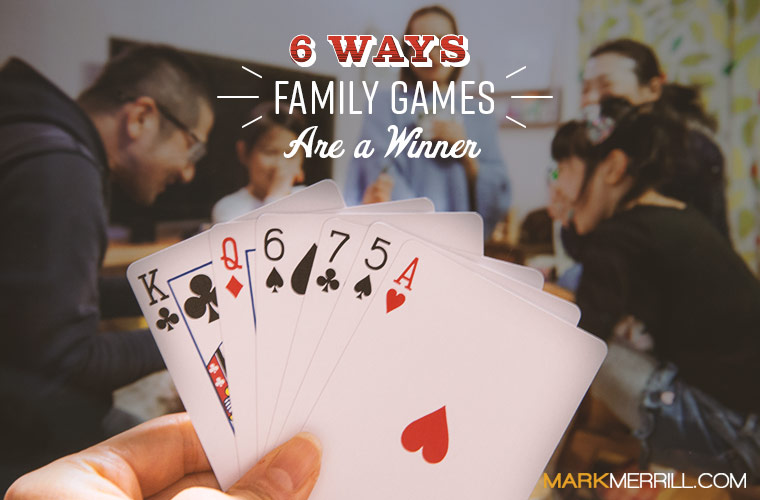It seems to be increasingly rare for families to gather around the table together these days, with so many conflicting schedules. And it appears to be even harder to get them to put their cell phones down when they do. But table time together as a family is vital for building strong relationships—and not just for eating. The family that plays together stays together, too.
I’ve been encouraged to see that even with technology so dominant, board games have been making something of a cultural comeback in recent years. Whether it’s Candy Land with toddlers or Monopoly with tweens and teens, spending time together playing games as a family provides an opportunity to grow in different ways. There are many games to play with family.
Some of Susan and my best memories are from playing board games and cards when our children were younger. We’d spend a no-technology evening together. They’re grown and out of the house now, but our children still enjoy playing cards and games with us when they visit.
Here are six ways playing games can enrich your family relationships.
1. Communication.
Explaining and understanding the rules require expressing yourself clearly and asking questions when you don’t understand something. There’s also opportunities to ask questions and talk about everyday life between moves. It’s amazing how much can come out when the conversation is easygoing. The quieter ones can be gently drawn out of their shells because they don’t feel they are being put under a spotlight. And as anyone who’s held a winning card waiting to get to play it without giving anything away knows, you can also learn a lot about how people communicate indirectly through body language.
2. Concentration.
In a world filled with so many digital distractions, we’re losing the ability to focus on one thing at a time—a critical skill for kids to develop. Games require a level of attention, which can be encouraged by requiring phone-free participation. Have everyone silence or put away their mobiles while they are playing to help them develop their attention span. Games also encourage strategic and critical thinking and problem-solving.
3. Competition.
Life is a contact sport: you have to go out there every day and try your best alongside everyone else. In many things, there are winners and losers. Games provide a safe place for learning how to contest things, seeing where you made mistakes, and correcting the next time. Trying your best, and accepting there are times when you get to be a humble winner and times when you get to be a good loser. Games are one of 5 Ways to Turn Sibling Rivalry into Revelry. And they can be a window into your children’s personalities, discovering who’s ultra-competitive and who doesn’t care who wins as long as everyone has fun.
4. Cooperation.
Individual games are good, but it’s also fun to play in teams. That way you learn to work with others, maybe accepting that your partner isn’t as adept as you and having to live with that, or recognizing they are better than you and being okay with it. You have to listen well, communicate clearly, and offer support and encouragement.
5. Celebration.
Everyone likes to be a winner, and with age-appropriate help or handicapping, even the youngest members of the family get an opportunity to be king of the hill. Little victories can be big confidence boosters. And when someone else takes the prize, there’s an opportunity to applaud and share in their success. Games can be a doorway for the 5 Manners You Must Model for Your Children.
6. Conflict resolution.
Sometimes good clean fun can get muddied when tempers flare: it’s not unknown for a board game to be overturned in anger or a player to retire in a fit. Here again is a safe place to learn how to work through anger and frustration, to ask for forgiveness and grant forgiveness.
If you want other fun ideas to do with your kids, try this treasure hunt!
What about your favorite family game memories? And which games would you recommend to other families, and why? Share your answers here.



